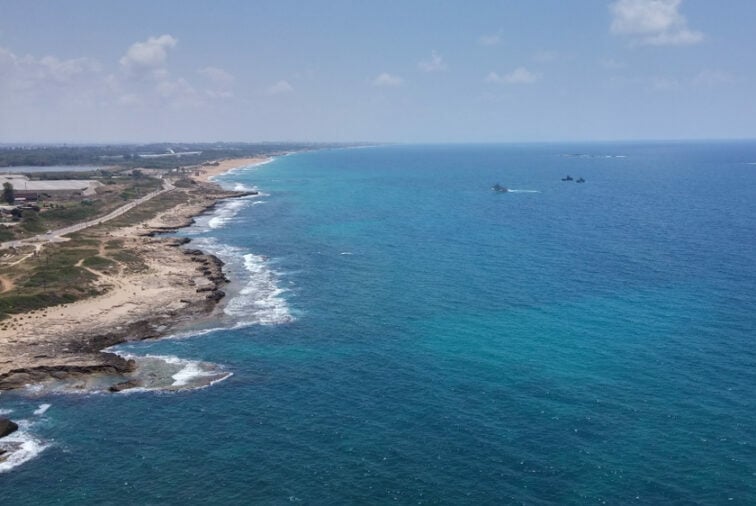قرب التوصل الى اتفاق ترسيم “تاريخي” بين لبنان واسرائيل
Following Lebanon’s receiving of the final draft of a US-brokered maritime demarcation agreement with Israel that could soon lead to a “historic agreement,” as Lebanon’s chief negotiator Elias Bou Saab described to Reuters, Israel’s National Security Agency chief Eyal Holata announced on Tuesday that a “historic” agreement was about to be reached.
In an Arabic-language statement on the progress of negotiations to demarcate the maritime boundary line with Lebanon, Holata said: “All our demands have been met and the amendments we have requested have been accepted. We have preserved Israel’s security interests. We are on the way to a historic agreement.”
Bou Saab said on Monday night, minutes after receiving the final draft: “If all goes well, Amos Hochstein’s efforts could lead to a historic agreement.”
He was referring to the US mediator who has been engaged in months-long shuttle diplomacy efforts between the two countries, trying to reach an agreement to demarcate the common maritime border.
Lebanese President Michel Aoun on Monday expressed hope that arrangements for the demarcation of the maritime border would be completed within the next few days.
“The indirect negotiations led by U.S. mediator Amos Hochstein have come a long way, and the gaps negotiated over the past week have narrowed,” he said.
“Reaching an agreement on the demarcation of the southern maritime border means the start of the process of oil and gas exploration in Lebanese fields located within the exclusive economic zone, which will achieve the beginning of a new impetus to the process of economic revival,” he said.
Local media in Beirut reported that the past few hours have seen the emergence of the “Qana complex” and exchange of wording on terms related to determining the time period between exploration, exploration, and extraction on the one hand, and Israel’s agreement with Total so that the business in Lebanon is not linked to prior Israeli approval.
The French side is obligated to pay “settlement/compensation” to Israel after exploration and estimation of the size of the stockpile, provided that Lebanon remains the owner of all the potential reservoir/field on its northern and southern sides. The French also renewed the pledge that Total, for its part, and aside from Lebanon’s revenues, would address what Israel considers its “right” in the field from the company’s revenues, not Lebanon’s.








